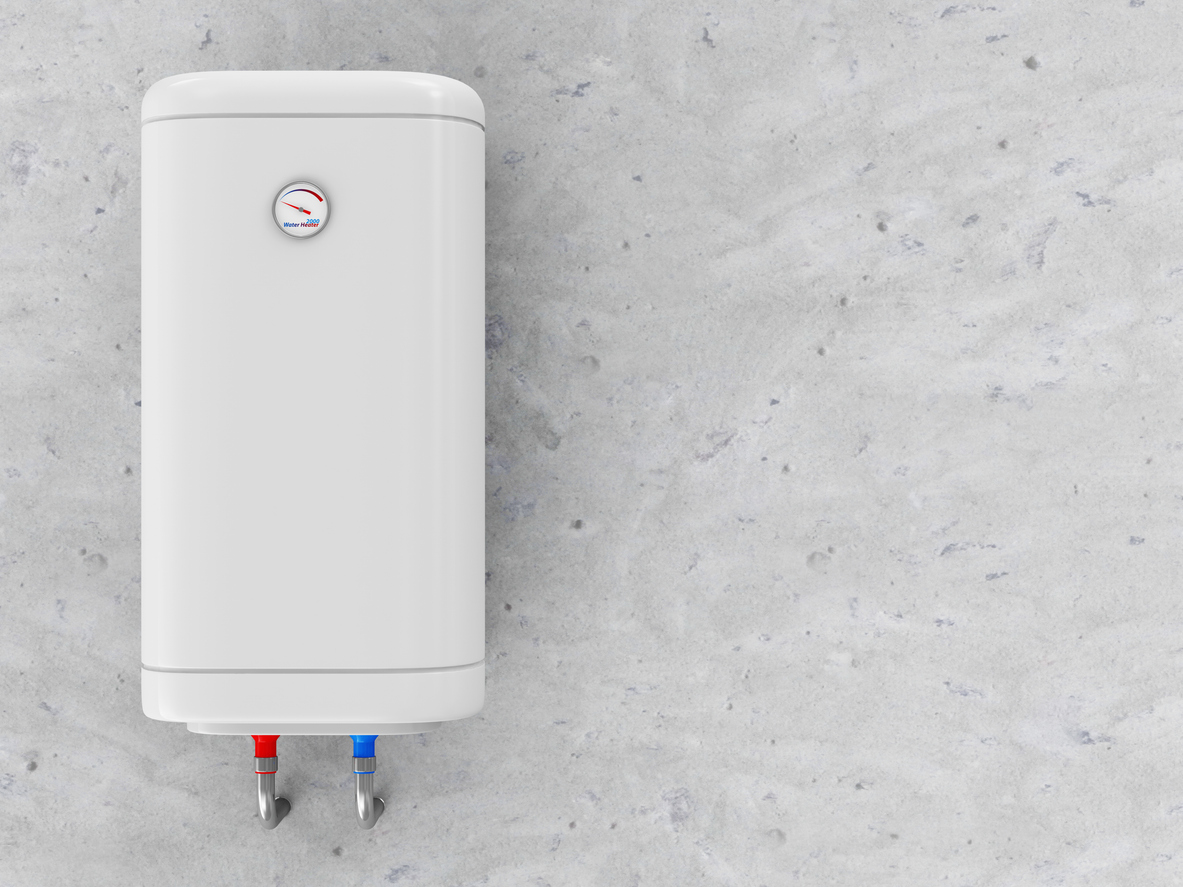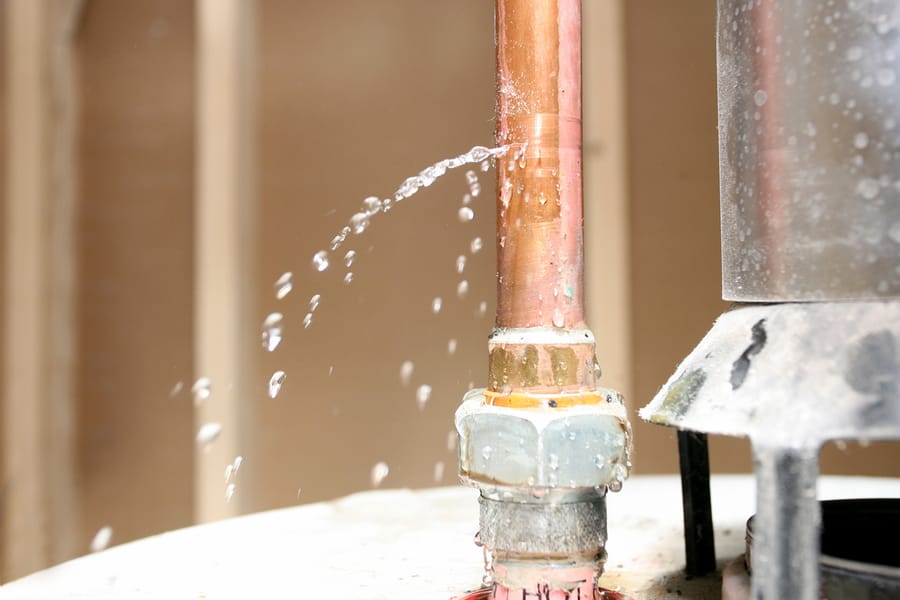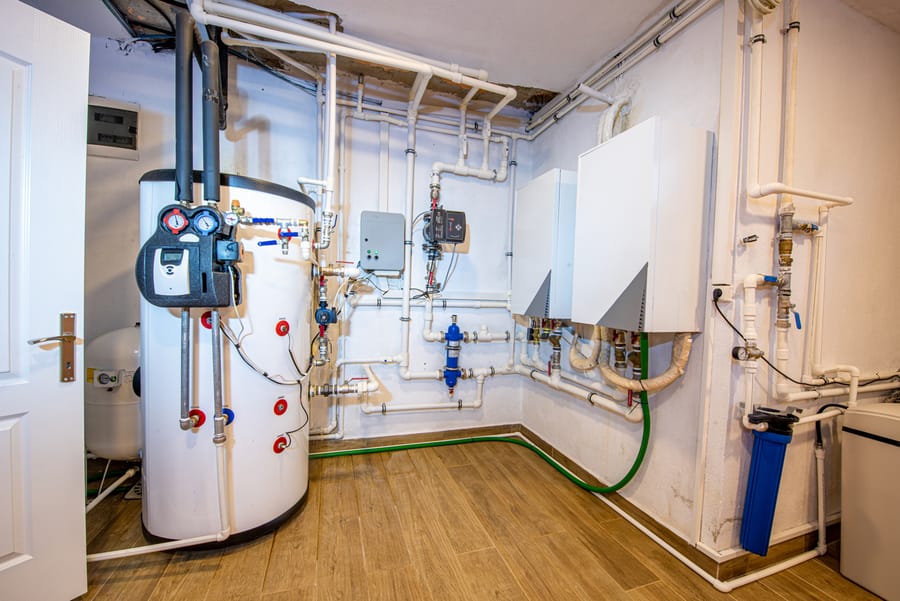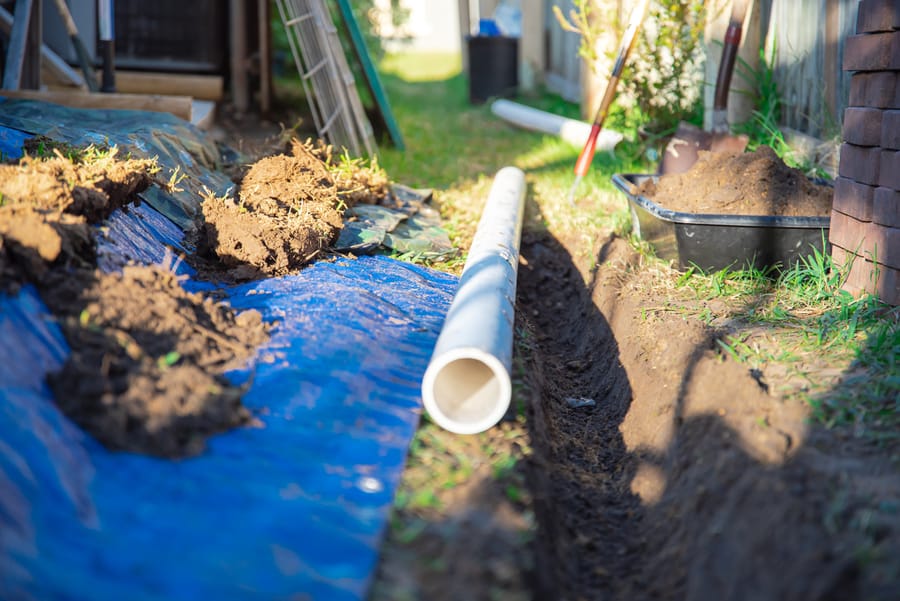absolute plumbing Inc.

Condensing vs. Non-Condensing Tankless Water Heater
In the world of home heating and hot water solutions, tankless water heaters have gained significant popularity due to their efficiency and space-saving design. Among the choices available, homeowners often find themselves deciding between condensing and non-condensing tankless water heaters. This guide will explore the key differences and benefits of each type to help you make an informed decision that suits your home’s needs.
Understanding Tankless Water Heaters
Before diving into the specifics of condensing vs. non-condensing models, it’s essential to understand what a tankless water heater is. Unlike traditional water heaters that store hot water in a tank, tankless water heaters heat water directly as it flows through the device. This means water is heated only when needed, leading to energy savings and consistent delivery of hot water.
What is a Condensing Tankless Water Heater?
A condensing tankless water heater is designed to capture heat from the exhaust gasses produced during the heating process and reuse it, increasing the overall efficiency of the system. This is achieved by using a secondary heat exchanger that condenses the exhaust gasses to extract more heat before the gasses are expelled. The result is higher efficiency and less energy waste, which can translate to lower utility bills for homeowners.
Condensing units are typically more expensive upfront but offer greater efficiency, with energy ratings often exceeding 90%. They are a smart choice for those who use a lot of hot water or live in colder climates where the unit needs to work harder to heat the water.
Non-Condensing Tankless Water Heaters
On the other hand, non-condensing tankless water heaters are the more traditional type. They operate without the additional heat exchanger, meaning they do not reuse the heat from the exhaust gasses. As a result, these units typically vent hotter gasses and require metal ducts for venting, which can add to the installation cost. However, non-condensing water heaters usually have a lower purchase price and can be less costly to install in homes that already have proper venting in place.
The energy efficiency of non-condensing tankless water heaters generally ranges from 80% to 85%. While they are less efficient than their condensing counterparts, they are still more efficient than traditional tank heaters and can be a cost-effective option for homes in milder climates or for households with lower hot water demand.
Condensing vs. Non-Condensing Tankless: Which to Choose?
When choosing between a condensing vs. non-condensing tankless water heater, several factors should be considered:
- Efficiency and Cost-Effectiveness: Condensing water heaters are more efficient and can save you money in the long run, especially in colder climates or for homes with high hot water usage. Non-condensing heaters might be more appropriate for milder climates or smaller households.
- Installation and Maintenance: Condensing units may require more complex installation and maintenance due to the condensate drain and the need to manage acidic condensate. Non-condensing models are simpler to install, especially if replacing another non-condensing model.
- Long-Term Savings: Although condensing water heaters have a higher initial cost, their operational savings can offset the upfront expense over time. Consider the longevity of your investment and potential energy savings when making your decision.
- Space and Ventilation Requirements: Non-condensing heaters typically require more robust venting solutions, which can limit where they can be installed within your home. Condensing models, with their more efficient exhaust, often have more flexible installation options.
The Difference Between Condensing and Non-Condensing Tankless Water Heaters
The main difference between these two types of tankless water heaters lies in their efficiency and operational mechanics. Condensing heaters are designed to make use of the exhaust gasses to heat water more efficiently, while non-condensing heaters dispose of the exhaust gasses without utilizing their residual heat.
Making Your Decision
Deciding between a condensing vs. non-condensing tankless water heater ultimately depends on your household’s specific needs, budget, and preferences for energy efficiency. Consider consulting with a professional to assess your home’s current heating setup and discuss the best options available.
Conclusion
Choosing the right tankless water heater can significantly impact your home’s comfort and your utility bills. Whether you opt for a condensing or non-condensing tankless water heater, both offer benefits that surpass traditional water heaters in terms of efficiency and space savings.
If you need more guidance or are ready to upgrade your home’s hot water system, contact Absolute Plumbing. Our team of experts is here to help you with all your plumbing needs, ensuring you choose the best water heating solution for your home. Call us today for a consultation and take the first step towards more efficient and reliable hot water delivery.
Recent News

The Cost of Delay: How a Small Spring Leak Becomes a Summer Foundation Repair

Why North Texas Homes Experience More Pipe Leaks in Winter and Early Spring

Why Your Water Heater Struggles More During Winter in Flower Mound

How Soil Shifting in North Texas Impacts Sewer Lines and Drains

Gas Line Safety in Texas Homes: What to Do Before Cold Weather Arrives

Inside a Plumbing Inspection: What We Check and Why It Matters

